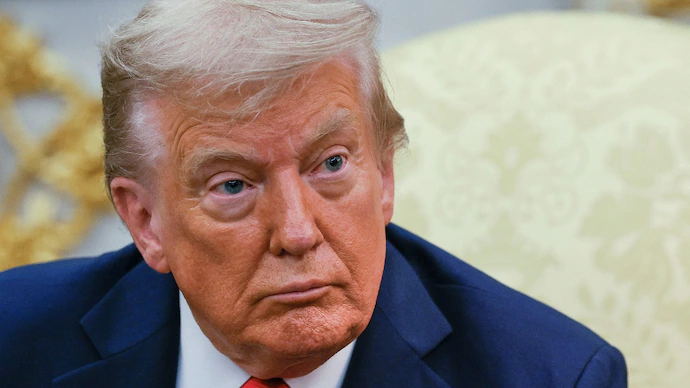
US Sanctions Myanmar Firm and North Korea Network Over Arms Trade
Introduction
The United States has imposed new sanctions on a network that links Myanmar’s military and North Korea’s weapons trade. Washington says this group supplied bombs and guidance kits to Myanmar’s air force. It also earned money for North Korea’s banned weapons programs.
US officials explained that the sanctions aim to stop Pyongyang from funding its missile and nuclear projects. They also want to reduce the junta’s ability to bomb civilians.
Who Faces Sanctions
The US Treasury Department targeted Royal Shune Lei Company Limited, a firm in Myanmar that buys arms for the military. It also named three Myanmar nationals:
Aung Ko Ko Oo, the company’s director
Kyaw Thu Myo Myint, a facilitator
Tin Myo Aung, another facilitator
Two North Koreans also face sanctions:
Kim Yong Ju, a KOMID representative based in Beijing
Nam Chol Ung, a money launderer with businesses in Southeast Asia
The US State Department calls KOMID (Korea Mining Development Trading Corporation), also known as the 221 General Bureau, North Korea’s main arms dealer. KOMID has already faced sanctions for exporting missiles and related equipment.
Weapons and Deals
US officials said KOMID arranged the sale of aerial bomb guidance kits, conventional bombs, and airborne monitoring systems. These items went to Myanmar’s air force.
Royal Shune Lei acted as the broker. It helped Myanmar’s generals secure weapons despite restrictions. As a result, the junta improved its ability to carry out airstrikes.
The junta has used these weapons in raids on schools, homes, and clinics. As a result, thousands of civilians have fled. The US hopes the new sanctions will block future deals and protect civilians.
The Role of North Korean Agents
Kim Yong Ju handled arms sales from Beijing. He linked North Korean suppliers with Myanmar buyers. His role shows how Pyongyang uses representatives abroad to manage deals.
Nam Chol Ung focused on money. He moved funds through shell companies across Southeast Asia. The US Treasury tied him to North Korea’s foreign intelligence agency. That agency already sits under US sanctions.
Washington’s View
“North Korea’s unlawful weapons programs are a direct threat to America and our allies,” said John Hurley, Under Secretary for Terrorism and Financial Intelligence. He added that the US will keep working to break arms trafficking networks.
The State Department explained that the sanctions have two goals. First, to block hard currency that supports North Korea’s weapons programs. Second, to reduce the capacity of Myanmar’s military to bomb villages since its 2021 coup.
Myanmar–North Korea Ties: A Long History
Myanmar and North Korea have cooperated for decades. In the 2000s, Myanmar hired North Korean experts to help build tunnels and develop missile systems. Reports also said Pyongyang sold artillery, radar, and missiles to Myanmar’s generals.
A United Nations panel once tracked North Korea’s arms trade. It reported regular exchanges with countries such as Myanmar, Syria, and Iran.
The Trump administration tried to block this cooperation. However, it accused North Korea of sending missile experts and materials to Myanmar. These efforts slowed the trade but did not stop it. Private companies and individuals continued to make deals in secret.
Effects on Myanmar’s Junta
The sanctions add more pressure to Myanmar’s military rulers. They already face an armed resistance at home and wide condemnation abroad.
Military impact: The junta may find it harder to get bomb kits and precision systems.
Economic impact: Sanctioned firms may struggle to move money or pay suppliers.
Diplomatic impact: Myanmar could lean even more on Russia and China for support.
Since 2021, the military has relied heavily on air power. Jets and helicopters have destroyed villages in ethnic states. Thousands of civilians have fled. The US hopes these sanctions will weaken the junta’s supply lines and reduce its attacks.
Effects on North Korea
For Pyongyang, the sanctions strike another blow to its already weak economy. North Korea depends on arms sales to earn cash. Sanctions limit that income, but Pyongyang continues to adapt.
The country has a long history of exporting weapons. It has supplied Syria, Iran, and many African states. Myanmar became an important partner after its 2021 coup.
Sanctions make this trade more risky. In addition, banks block payments and shippers avoid deals. Still, North Korea often finds new partners. It sets up front companies and shifts operations to friendly countries.
No Comment From the Parties
Neither Royal Shune Lei nor Myanmar’s generals responded to the sanctions. North Korea’s UN office and Myanmar’s embassy in Washington also gave no reply.
This silence is not surprising. Both governments usually ignore or deny such measures. Yet, they still need to adjust their networks when sanctions cut off funds and supplies.
A Larger Picture
The sanctions come during a tense time in Asia. In 2025, North Korea tested more than a dozen missiles, including long-range ones. At the same time, Myanmar’s junta has intensified its war against resistance forces.
By linking these issues, Washington wants to show that arms trafficking connects global crises. Stopping the flow of weapons can weaken both regimes. It also sends a warning to others considering similar deals.
Conclusion
The United States has sanctioned Royal Shune Lei Company Limited and several individuals tied to weapons trade. The sanctions also name North Korean agents who launder money and sell arms.
Washington hopes the measures will limit two things: North Korea’s ability to expand its weapons programs and Myanmar’s ability to bomb its own people.
Neither regime will collapse from these steps alone. Both have survived sanctions before. However, the new rules raise the cost of doing business. For Myanmar’s civilians, who live under the constant threat of airstrikes, even small disruptions can mean fewer attacks and more safety.
### Frequently Asked Questions
**Q: Why did the US sanction Myanmar’s Royal Shune Lei?**
A: The firm procured North Korean bomb kits and supplied them to Myanmar’s military.
**Q: What is KOMID?**
A: KOMID, also called the 221 General Bureau, is North Korea’s main arms dealer.
Credit: U.S. Department of the Treasury
Related posts:
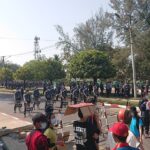 RIGHTS GROUPS DEMAND MYANMAR JUNTA END CHILD SOLDIER PRACTICE
RIGHTS GROUPS DEMAND MYANMAR JUNTA END CHILD SOLDIER PRACTICE
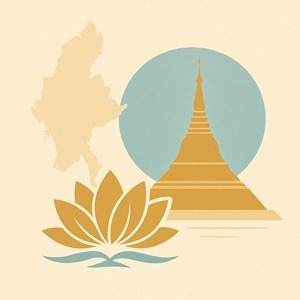 Best New Construction Window Installation Near Me
Best New Construction Window Installation Near Me
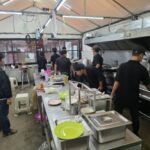 Myanmar Workers Arrested in Bangkok and Chiang Mai Restaurants
Myanmar Workers Arrested in Bangkok and Chiang Mai Restaurants
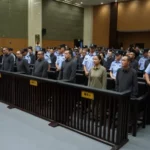 China Executes 16 Tied to Myanmar Crime Syndicate
China Executes 16 Tied to Myanmar Crime Syndicate
 Policy Dilemmas and Stability: Bangladesh’s Approach to the Arakan Army
Policy Dilemmas and Stability: Bangladesh’s Approach to the Arakan Army
 PANIC AT THE BORDER AS INDIAN TROOPS KILL MYANMAR INSURGENTS: ‘EVERYONE FEELS UNSAFE’
PANIC AT THE BORDER AS INDIAN TROOPS KILL MYANMAR INSURGENTS: ‘EVERYONE FEELS UNSAFE’
